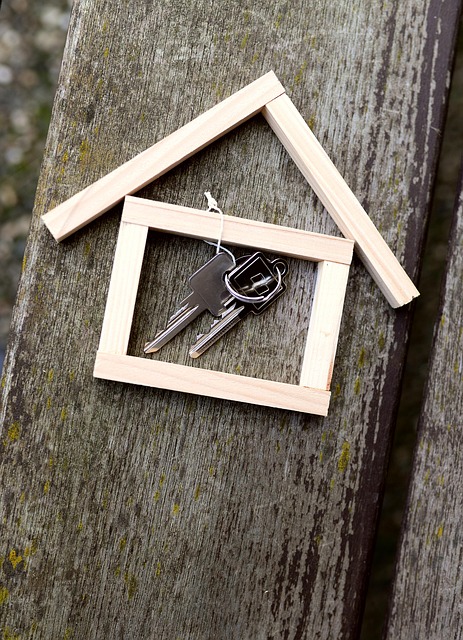Estimating Home Value: A Complete Guide for Buyers & Sellers
Curious what your home is really worth? This in-depth guide explains the key factors that shape property value, how to estimate your home's market price using online tools, comparable sales, and professional appraisals, and why accurate valuation matters for buying, selling, refinancing, or planning renovations. Learn practical tips and resources to get a reliable estimate of your home's worth.

Understanding what determines a home’s value is essential whether you’re buying, selling, refinancing, or simply tracking your net worth. This guide walks through the main elements that influence property worth, practical ways to estimate value, when to call in a professional appraiser, and why accurate valuation makes a difference in any real estate decision.
Factors that shape home value
Several core factors interact to determine what a property is worth in today’s market:
- Location: Proximity to schools, public transit, employment centers, shopping, and neighborhood safety are often the single biggest drivers of value. Desirable neighborhoods tend to hold and appreciate value faster.
- Size and layout: Square footage, number of bedrooms and bathrooms, and functional layouts matter. Usable living space typically adds more value than unfinished or poorly configured areas.
- Condition and age: Newer homes or those maintained well usually fetch higher prices. Wear, deferred maintenance, or outdated systems can reduce value unless upgraded.
- Upgrades and unique features: Renovated kitchens, modern bathrooms, energy-efficient systems, finished basements, or outdoor living spaces often boost a home’s appeal and price. Unique architectural styles or historic details can increase value for certain buyers.
- Comparable sales and market conditions: Recent sales of similar homes in your area (comps) set the baseline for pricing. Broader market dynamics—supply and demand, interest rates, and local employment trends—can shift valuations up or down.
- Economic and regulatory factors: Local zoning changes, new infrastructure projects, tax policy, and mortgage availability all influence buyer appetite and pricing.
How to estimate your home’s value
There are several approaches to gauging a home’s worth, each with pros and cons. Best practice is to combine multiple methods for a rounded view.
- Online home value estimators: Real estate websites and automated valuation models (AVMs) use public records and recent sales data to produce quick estimates. They’re convenient and free but can miss recent renovations, interior condition, or unique property features.
- Comparative market analysis (CMA): Doing your own research or getting an agent to create a CMA involves finding recently sold properties similar to yours and adjusting for differences. CMAs tend to be more accurate than simple online tools because they account for local nuances, but they require time and a basic understanding of how adjustments are made.
- Professional appraisal: A licensed appraiser conducts a formal inspection, analyzes comps, and produces an unbiased report estimating fair market value. Appraisals are the most reliable method for mortgage and legal purposes but come with a fee and take more time.
| Method | Typical cost | Accuracy | Timeframe |
|---|---|---|---|
| Free online estimator | $0 | Low to moderate | Instant |
| Comparative market analysis (agent) | Often free | Moderate | 1–7 days |
| Licensed appraisal | $300–$700+ | High | Several days to 2 weeks |
| Automated valuation model (AVM) | Varies | Moderate | Instant |
Cost estimates are approximate and may change over time. Independent research is advised before making financial decisions.
What to expect from a professional appraisal
A licensed appraiser provides the most thorough valuation. The process usually includes a physical inspection of the property, noting condition, room counts, upgrades, and any issues that could affect value. The appraiser compares recent sales of similar homes, considers replacement-cost and, when applicable, income approaches, and produces a written report with an estimated market value. Lenders often require appraisals for mortgage approvals, and the impartial nature of the appraisal is designed to protect both buyer and lender.
Why accurate valuation matters
Accurate property valuation impacts many financial decisions:
- For sellers: A well-researched listing price helps attract buyers and avoid long market times. Overpricing can stall a sale; underpricing can leave money on the table.
- For buyers: Knowing true market value prevents overpaying and strengthens negotiation leverage.
- For homeowners: Accurate valuations are needed for refinancing, securing home equity loans, setting adequate insurance coverage, and making cost-effective renovation choices.
- For tax and legal matters: Property taxes, estate planning, and certain legal proceedings rely on defensible valuations.
When should you reassess your home’s value?
Markets and homes change. Reassess your property value when:
- You plan to sell or refinance.
- You complete major renovations or additions.
- Significant new development or infrastructure appears nearby.
- Local market trends shift markedly (rapid appreciation or decline).
- You need updated figures for insurance, taxes, or estate planning.
As a rule of thumb, checking value annually or every few years keeps you informed; more frequent reassessment may be warranted in volatile markets.
Tools and resources to use
- Real estate websites and AVMs for quick estimates.
- Local MLS and public records for recent comparable sales.
- Real estate agents for CMAs and local market insight—many offer free initial analyses.
- Licensed appraisers for formal valuation reports where accuracy is crucial.
- Government resources such as tax assessor records for historical assessments (note that assessments may lag market conditions).
Practical tips
Use multiple methods to triangulate a realistic value: start with online tools, verify with local comps, and hire a pro when accuracy is essential. Keep a record of recent improvements and receipts—these help in CMAs and appraisals. Finally, remember that value is both objective (comps, condition) and subjective (how buyers perceive your home), so presentation and timing can matter as much as numbers.
Combining data, local expertise, and professional appraisal when needed gives you the clearest picture of your home’s worth and helps you make sound real estate decisions.




